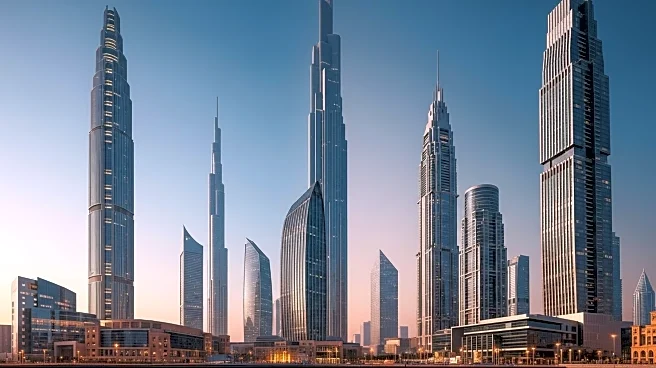What's Happening?
The populist right in the UK is expressing interest in remaking the country in the image of Dubai, citing the emirate's low crime rates, national pride, and strict immigration policies as desirable attributes. Reform UK has highlighted Dubai's system of periodic work visas as a model for immigration reform. Critics argue that Dubai's societal model includes significant drawbacks, such as lack of workers' protections, environmental issues, and social inequalities. The vision of Dubai as a utopia is contrasted with the reality of its migrant worker population, which faces challenging living and working conditions.
Why It's Important?
The advocacy for a Dubai-like model in the UK raises important questions about social justice, human rights, and economic inequality. While Dubai's economic success and low crime rates are appealing, the lack of democratic freedoms and workers' rights presents ethical concerns. Emulating such a model could lead to increased social stratification and reduced protections for vulnerable populations. The debate highlights the tension between economic growth and social equity, prompting discussions on the values and priorities that should guide national policy.
Beyond the Headlines
The push for a Dubai-like model reflects broader trends in global politics, where economic success is often prioritized over social welfare. The implications of adopting such a model could extend beyond economic policy, affecting cultural and ethical norms. The discourse around Dubai's societal model serves as a reminder of the complexities involved in balancing economic ambitions with social responsibilities, and the need for careful consideration of the long-term impacts on society.









